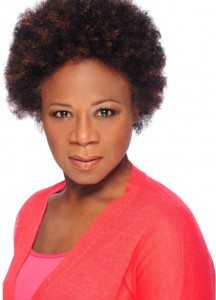
I n her show "Ordinary Miracles," at the Metropolitan Room, Donna Hayes makes a strong case for her title's seeming to be an oxymoron. In her view, it's those unexpected miracles that matter most, and they are to be found all around us, not so much the major ones we pray or long for. These minor miracles may depend on the kindness (and quirkiness) of strangers and emerge out of prosaic situations, "some miracles so subtle I didn't even recognize them at first."
n her show "Ordinary Miracles," at the Metropolitan Room, Donna Hayes makes a strong case for her title's seeming to be an oxymoron. In her view, it's those unexpected miracles that matter most, and they are to be found all around us, not so much the major ones we pray or long for. These minor miracles may depend on the kindness (and quirkiness) of strangers and emerge out of prosaic situations, "some miracles so subtle I didn't even recognize them at first."
Hayes, a beguiling and compelling performer, with a wide-ranging musical taste and interpretive ability, advances her thesis by telling her story close to home. Two of her 13 songs, in fact, are called simply "Home": her opener by Greg Holden and Drew Pearson, and eight songs later, an equally moving "Home" (Charlie Smalls, from The Wiz). In her narration, Hayes shares just enough of her life story, in pretty much straight chronological fashion, to introduce an astonishing variety of songs, both familiar and un-, in wildly different styles, across six decades.
In a nod to her growing up in rural Jamaica, dirt poor and with only outdoor plumbing, Hayes offers a spirited delivery of what may be the best-known reggae song of them all, "One Love" (Bob Marley), which is now even better known as the song in the Jamaica Tourist Board commercials. She couples this with the far less familiar "Duppy or Gunman" (Winston Foster, Henry "Junjo" Lawes), referring to the dead and the undead, respectively, and the ghostly side of her native country's belief system.
Stories of her Jamaican childhood are charmingly told, making the first miracle even more dramatic. At age twelve she took her first trip to the United States, alone, on an airplane that suddenly lost one of its wings prior to landing. She and the other passengers survived, a fact she celebrates with the Whitney Houston "Miracle" (L.A. Reid, "Babyface"), coupled with "When You Believe" (Stephen Schwartz, additional lyrics by Babyface, from Prince of Egypt). Understandably, her subsequent delivery of "Being Alive" (Stephen Sondheim) is especially heartfelt and lifted high above cabaret cliché.
Hayes came to America for good at age 14, facing an uncertain future, and at 21 "fell madly in love, ran away and got married. For a while, he was my way out, and then he wasn't. I was dirt poor again, and a single mother." She got so fat she "couldn't walk up a flight of stairs. I was in a marathon, and by the time I crossed the finish line the Africans were on the plane going home." She lost 85 pounds, and recently, on a "defy-your-age" segment of the Dr. Oz TV show, was guessed to be 34 years old. (She's now 52 and long a successful businesswoman.) Hayes tracks these downs and ups of her life with "All of Me" (John Legend, Toby Gad), "Will You Love Me Tomorrow?" (Gerry Goffin, Carole King), "Good Morning, Heartache" (Irene Higginbotham, Dan Fisher, Ervin Drake), and "Fast Car" (Tracy Chapman). Her mélange of modern pop and R&B, 1960s classics, show and movie tunes and other standards is topped off by "My Beloved" (Kari Jobe, Klaus Kuehn) in a medley with "Bridge Over Troubled Water" (Paul Simon), "Fix You" (Coldplay), and The Fray's "Be Still" (Isaac Slade).
Hayes's smooth eclecticism is nicely directed by Gretchen Reinhagen, and beautifully backed by musical director Justin Stoney (piano), Donna Kelly (drums) and Matt Scharfglass (bass). My only quibble is that Hayes, like too many other cabaret artists, only gets to do her show, one night at a time, four times a year, with several months in between each engagement.